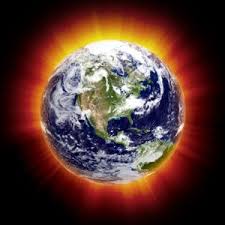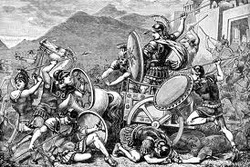 www.conserve-energy-future.com
www.conserve-energy-future.com Economist Solomon Hsiang of the University of California, Berkeley, and lead author of the study published by Science, said that whenever the analyzed studies looked at temperature and conflict, the link was clear, no matter where or when. Examples include an increase in domestic violence in India during recent droughts, and a spike in assaults, rapes and murders during heatwaves in the US.

Researchers analyzed 60 studies on historic empire collapses, recent wars, violent crime rates in the United States, lab simulations that tested police decisions on when to shoot and even cases where pitchers threw deliberately at batters in baseball. They found a common thread over centuries: Extreme weather—very hot or dry—means more violence.
 science.howstuffworks.com
science.howstuffworks.com However, the scenario for disaster is probably untrue. With positive changes in technology, economics, politics and health, conflict is likely to drop. Also, many other factors play a role in discord. Will conflict from global warming outweigh peace from prosperity? It’s a race against time.
Some studies suggest that heat causes people to be prone to aggression. Although people say they feel sluggish when they are hot, their heart rate and other physical responses are aroused and elevated. They think they are not agitated, when in fact they are.
When the temperature rises, I'm inclined to get lethargic in my dotage. However, when I worked in a fiery kitchen, I had to force myself to overcome exhaustion. Maybe an overheated person needs mental strength to conquer the desire to lash out in temper. Humans are all at different stages of their learning. Compare Hitler to Gandhi.
How do you act in the heat?

 RSS Feed
RSS Feed






